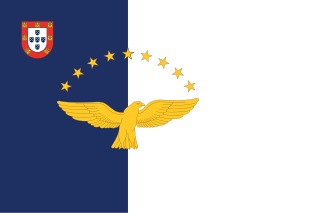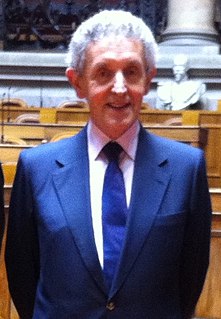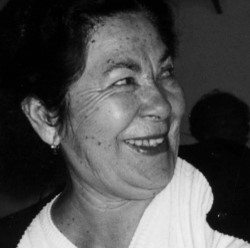
The Carnation Revolution, also known as the 25 April, was a military coup on 25 April 1974 in Lisbon which overthrew the authoritarian Estado Novo regime, producing fundamental social, economic, territorial, demographic and political changes through the Processo Revolucionário Em Curso, resulting in the Portuguese transition to democracy, and the end of the Portuguese Colonial War.

The Second Portuguese Republic, or more commonly known as Estado Novo, was the corporatist regime installed in Portugal in 1933. It evolved from the Ditadura Nacional formed after the coup d'état of 28 May 1926 against the democratic and unstable First Republic. Together, the Ditadura Nacional and the Estado Novo are recognised by historians as the Second Portuguese Republic. The Estado Novo, greatly inspired by conservative and autocratic ideologies, was developed by António de Oliveira Salazar, who was President of the Council of Ministers from 1932 until illness forced him out of office in 1968.

Elections in Portugal are free, fair, and regularly held, in accordance with election law.

The present Constitution of Portugal was adopted in 1976 after the Carnation Revolution. It was preceded by a number of constitutions including the first one created in 1822, 1826, 1838, 1911, and 1933.

The Portuguese Constituent Assembly election, 1975 was carried out in Portugal on 25 April 1975, exactly one year after the Carnation Revolution. The election elected all 250 members of the Portuguese Constituent Assembly.

The Portuguese legislative election of 1976 took place on 25 April, exactly one year after the previous election, and two years after the Carnation Revolution. With a new Constitution approved, the country's main aim was economic recovery and strengthening its democratic institutions. The election renewed all 263 members of the Assembly of the Republic.

The National Assembly is the unicameral legislative body of the Democratic Republic of São Tomé and Príncipe.

The Armed Forces Movement was an organization of lower-ranking, politically left-leaning officers in the Portuguese Armed Forces. It was responsible for instigating the Carnation Revolution of 1974, a military coup in Lisbon that ended Portugal's corporatist New State regime and the Portuguese Colonial War, which led to the independence of Portugal's overseas territories in Africa. The MFA instated the National Salvation Junta which governed the country from 1974 to 1976, following a communiqué of its president, António de Spínola, at 1:30 a.m. on 26 April 1974.

Carlos Galvão de Melo was a Portuguese military officer from the Portuguese Air Force.

The National Salvation Junta(Junta de Salvação Nacional,[ˈʒũtɐ dɨ saɫvɐˈsɐ̃w̃ nɐsiuˈnaɫ]) was a group of military officers designated to maintain the government of Portugal in April 1974 after the Carnation Revolution had overthrown the Estado Novo dictatorial regime. This junta assumed power following a communiqué of its president, António de Spínola, at 1:30 a.m. on 26 April 1974. The National Salvation Junta was the de jure governing body of Portugal following the Carnation Revolution.

The Third Portuguese Republic is a period in the history of Portugal corresponding to the current democratic regime installed after the Carnation Revolution of 25 April 1974, that put an end to the paternal autocratic regime of Estado Novo of António de Oliveira Salazar and Marcello Caetano. It was initially characterized by constant instability and was threatened by the possibility of a civil war during the early post-revolutionary years. A new constitution was drafted, censorship was prohibited, free speech declared, political prisoners were released and major Estado Novo institutions were closed. Eventually the country granted independence to its African colonies and begun a process of democratization that led to the accession of Portugal to the EEC in 1986.

Vasco da Gama FernandesGCC, GCL, was a Portuguese lawyer and politician.

The political status of the Azores is defined by the Political-Administrative Statute of the Autonomous Region of the Azores, which acts as the standard legal constitutional framework for the autonomy of the Portuguese archipelago of the Azores. It defines the scope of the autonomous regional government and the structure and functioning of the region's organs of government within the framework of the 1976 Constitution of Portugal. The autonomous region of Madeira has a similar status.

The Azores Regional Election (1976) was an election held on 27 June 1976 for the first Legislative Assembly of the Portuguese Autonomous Region of the Azores.
António Borges Coutinho GOL was a Portuguese lawyer and politician.
The Movimento Democrático de Mulheres is a Portuguese non-governmental women's association. It was created in 1968 by groups opposed to the Estado Novo regime and continued after the overthrow of the regime in 1974.
Etelvina Lopes de Almeida was a Portuguese writer, journalist, broadcaster and a deputy for the Portuguese Socialist Party (PS) in the Assembly of the Republic.
Helena Roseta is a Portuguese architect, specialising in improvements to poorer neighbourhoods, and a politician who has been a member of the Assembly of the Republic and President of the Assembly of Lisbon Municipality.

Isabel Moreira is a Portuguese jurist and politician. A Deputy in the Assembly of the Republic of Portugal, as a representative of the Portuguese Socialist Party (PS), she is known for her campaigns in favour of LGBT rights.

Fernanda Peleja Patrício was a Portuguese communist who opposed the country's Estado Novo regime. After the overthrow of the Estado Novo, she served on the Constituent Assembly of Portugal and in the first legislature of the Assembly of the Republic.














